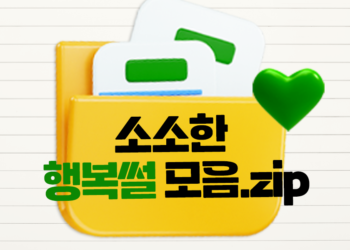Avoiding the Unintended Consequences of Casual Feedback
무심코 던진 피드백이 의도치 않은 효과를 가져오지 않게 하려면
Jeff Weiner -Executive Chairman at LinkedIn
A few years ago, a renowned consumer web company founder/CEO shared the following anecdote: One of the company’s product teams had been working around the clock for weeks in order to hit a critical launch date. During the final product review, the CEO casually remarked that he would have preferred one of the key design elements to have appeared in a different color. Thinking nothing of it, he moved on with the review.
몇 해 전, 한 유명한 소비자 웹 기업의 CEO와 다음과 같은 일화를 나누었다: 회사의 생산 팀 중 한 팀이 중요 제품의 판매 개시일을 맞추기 위해 빠듯하게 일해오고 있었다. 제품 최종 검토 단계에서 문득 CEO는 핵심적인 디자인 요소 중 하나가 다른 색이었으면 좋겠다는 말을 던졌다. 그는 그 말을 대수롭지 않게 생각하며, 다른 제품의 검수를 이어갔다.
A few weeks later, when the CEO pressed the team on why they were going to miss their launch date, they explained they had put everything on hold to re-design the product so that the color was to his liking. His response was essentially, “You did what?!”
몇 주 후, 제품의 판매 게시일이 늦어져 CEO가 해당 팀에 왜 판매 게시일이 늦어졌는지를 물었고, 생산 팀은 CEO가 선호하는 색상으로 디자인을 다시 하기 위해 모든 과정을 잠시 중단했다고 설명했다. “뭘 했다고?!”
The CEO’s informal observation — unbeknownst to him — had been interpreted as an all-hands on deck exercise that ground the launch to a halt.
본인도 모르는 사이에, CEO가 검토 과정에서 내린 평가는 제품 출시를 미뤄야 할 일로 받아들여진 것이다.
While perhaps not always as extreme as this example, practically all managers have experienced a similar dynamic; the more senior your role, the more likely it is to occur. While it can be particularly acute with less experienced managers who are not yet accustomed to their newly acquired authority, it can be just as prevalent in long-tenured executives who simply forget how long a shadow their seniority casts over the organization.
위의 일화와 같이 극단적이진 않을지라도, 많은 사람들이 이와 비슷한 상황을 경험했을 것이다. 그리고 직급이 높을수록 이런 일이 일어날 확률이 높다.
Years ago, a former direct report of mine helped bring this point home. While he and his team welcomed my input, he observed that oftentimes what I thought was a take-it-or-leave-it remark would create a massively disruptive fire drill. Up until that moment, I had no idea my opinion was being weighted so heavily.
몇 해 전, 나의 직속 후임이 이 점을 명확하게 설명해 주었다. 나는 나도 모르게 지속적으로 의견을 제시했고, 나의 의견은 업무에 큰 영향을 준다는 것이었다. 그 순간까지도 나는 나의 의견이 그렇게 큰 영향을 미치는 지 전혀 몰랐다.
To address the issue and to ensure that the team and I were on the same page with regard to situations like that, we developed three categories to describe any feedback I provided (either in conversation or via email): One person’s opinion, strong suggestion, or mandate.
그래서 나는 이를 해결하기 위해 피드백을 셋으로 분류하는 방법을 개발했다.
바로, 1) 한 사람의 의견, 2) 강한 제안, 3) 지시 이다.
1. One person’s opinion (OPO) 한 사람의 의견 (OPO)
The vast majority of feedback I provide falls into the category of one person’s opinion (OPO). Essentially, this is a subjective, anecdotal opinion where the input is to be treated as coming from just one user/customer/member of the team. After communicated, it’s completely up to the person responsible for the initiative as to whether or not they act on the advice.
나의 피드백 중 대다수는 한 사람의 의견(OPO)으로 분류될 것이다. 이 피드백은 주관적이고 입증되지 않은 한 사람의 의견일 뿐이다. 그러므로 이 피드백에 대한 수용 여부는 온전히 프로젝트 책임자에게 있다.
When providing OPO, your title and authority should not enter into the equation. Note, this is easier said than done as it may take some time before more junior members of the team realize you are genuinely comfortable with them challenging the guidance of a senior leader.
OPO가 제공될 때 직위와 권위는 상황에 고려되지 않아야 한다.
Given that the team will have its own strong beliefs (which is ideally what led them to develop what you are reviewing to begin with), is busy with a multitude of other potentially higher priorities, and is much closer to the specifics (and costs) of making the changes you proposed, be prepared for them to disregard your suggestions as often as they act upon them. If it truly is just one person’s opinion, and you’ve got the right talent in place, that should be just fine.
팀 내에서는 이미 프로젝트를 실행하기 위해 다양한 전략과 우선순위를 세워 실행하고 있을 것이다. 당신의 말이 그저 가벼운 의견이었고, 프로젝트 수행에 필요한 적절한 인재가 배치되었다면 아무 문제가 없을 것이다.
2. Strong suggestion 강한 제안
One notch up from OPO is the “strong suggestion.” This is more than one person’s opinion, but still falls short of telling the team what to do.
OPO에서 한 단계 더 높은 것은 “강한 제안”이다. 한 사람의 의견보다는 강하지만 팀에 일을 지시하는 것보다는 부드러운 발언이다.
The strong suggestion is typically used when a senior executive seeks to draw upon his or her experience, yet provide the team the space to take risks, make mistakes, hone their instincts, and ultimately scale the process by which key decisions are made within the company.
강한 제안은 조직 내에서 중요한 결정의 규모를 조정할 때 주로 사용된다.
Successfully providing feedback this way requires you to trust the people you’ve empowered to have the final say. At the same time, it requires the team to maintain an open-mind and, if need be, defer to your better judgement. On both ends, it requires the subjugation of egos for the sake of doing what’s best for the company. If that sounds like a difficult balance to strike, that’s because it is.
이 방식의 피드백을 잘 하기위해서는 당신이 결정권을 준 이들을 신뢰해야 한다. 그리고 최상을 결과를 얻기 위해서는 양측의 균형을 잘 맞추어야 한다. 하지만 쉬운 일은 아니다.
3. Mandate 지시
As important as it is to allow the team to take risks, make mistakes, and learn from those mistakes, inevitably there will come a time when the consequences of poor judgement might prove so harmful, you need to proactively prevent the damage from being done.
잘못된 판단으로 인해 피해가 일어나지 않도록 사전에 이를 제지해야 하는 때가 있다.
Put another way, if you want to teach someone about the perils of driving drunk, you don’t wait for them to have a few drinks and then get behind the wheel so they can learn from experience.
음주운전이 해롭다는 점을 가르치기 위해, 실제로 음주운전을 경험하게 하지 않는 것과 마찬가지다
As a manager, it’s up to you to determine how material the risk is of a team moving forward on a decision you disagree with, and ensure that if there is potential for lasting harm to the individual, the team, and/or the company, you take the proper steps to intervene and educate them later.
조직의 리더로서 당신은 당신이 동의하지 않은 결정을 실행하는 팀의 위험성을 감지하고, 그 일로 인해 조직에 피해가 갈 가능성이 있는지에 대한 여부를 확실히 하고, 적절한 조치를 취해야 한다.
Issuing mandates when it makes sense can pay huge dividends by enabling the company to avoid prohibitively costly mistakes. However, issue them too often or without the right justification and there is no faster way to signal your lack of trust and demotivate the team. Try to use this category sparingly (if at all).
실수를 하기 전 지시를 내리는 행위는 조직으로 하여금 피해를 줄이는 가치있는 일이다. 하지만 너무 자주 그리고 타당한 이유 없는 지시는 당신을 불신하게 하며 팀의 의욕을 저해하는 행동이다. 지시는 꼭 필요할 때만 사용하도록 노력해야 한다.




![[연구참여자 모집/사례 지급] 자유연상 패턴과 심리적 속성 간의 관계 탐색](https://happyfinder.co.kr/wp-content/uploads/2024/05/워드프레스_연구참여자모집-360x180.png)













